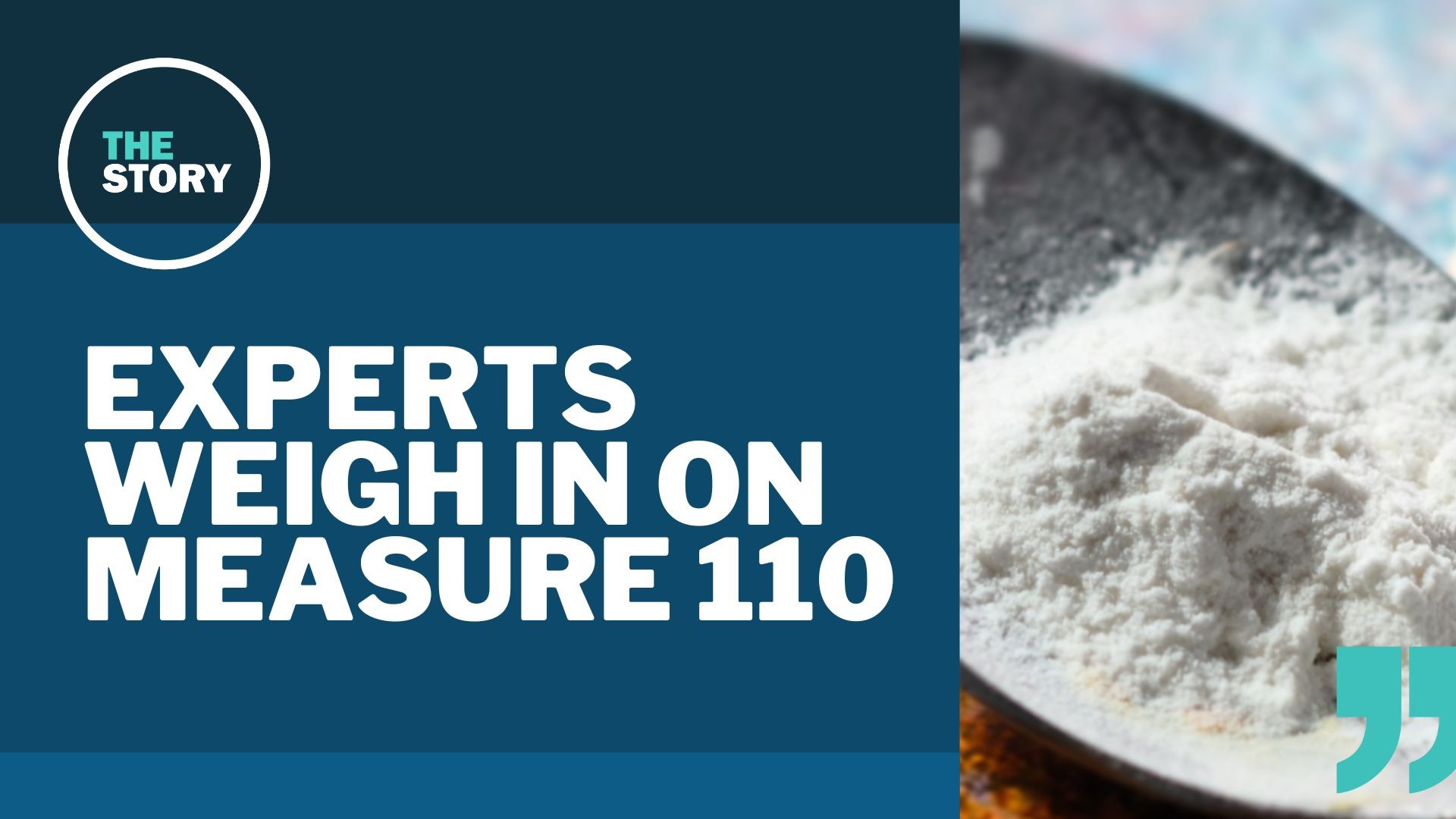SALEM, Ore. — It's been almost two years since Oregon voters passed Measure 110, decriminalizing possession of small amounts of hard drugs. The plan was to use money from the state's marijuana tax to create more addiction services — putting emphasis on treatment over punishment.
But many people see the measure as a contributor to the state's drug addiction problem, and some argue it should be repealed.
Keith Humphreys is an expert in the prevention and treatment of addiction. He told Oregon lawmakers recently that the state's drug policy encourages drug use and has no deterrents.
"Addicted people usually do not seek treatment and recovery without external pressure from family, friends, employers, health care providers or the law. Why does this matter? It matters because Oregon has removed all legal pressure to stop drug use and seek treatment. Because many addicted people are not working or in touch with their family, those pressures to stop using drugs and alcohol are absent from their lives," Humphreys said.
He did not say voters should overturn Measure 110, but he did say the state could make changes to the measure that would help slow growth in the number of addicts in Oregon.
RELATED: Despite dismal start, hopes remain for Oregon's drug decriminalization and treatment program
Humphreys founded and co-directs the Stanford Network on Addiction Policy. He also served as a member of the White House Commission on Drug-Free Communities under President George W. Bush and was a senior advisor at the White House Office of National Drug Control Policy under President Barack Obama.
He laid out Oregon's situation in stark terms.
"Because the West Coast has an individualistic culture with a tolerance for substance abuse, social pressures to seek treatment are often minimal. So on the one hand, we have highly rewarding drugs which are widely available. On the other hand, little or no pressure to stop using them. Under those conditions we should expect to see exactly what Oregon is experiencing. Extensive drug use, extensive addiction and not much treatment seeking."
Measure 110 does allow police to write tickets for $100 if someone is found to be in possession of small amounts of drugs for personal use, and a person can have the ticket wiped away by calling the Lines for Life helpline.
Most who are issued tickets ignore them, according to Dr. Todd Korthuis, head of addiction medicine at Oregon Health & Science University.
"The original plan to ticket people who use drugs and have them call a treatment hotline has not worked. Of over 3,000 tickets issued as of the end of this summer, the hotline received 137 calls for treatment, most of whom weren't looking for treatment. They were looking for screening for legal purposes," said Korthuis.
He added, "Only 1% of those issued a ticket for drug possession requested information about treatment resources. In my discussions with treatment leaders around the state, not one has had any patient enroll in treatment due to these tickets."
Humphreys spoke to lawmakers about Portugal, which decriminalized user amounts of drugs long before Oregon.
"Now its worth noting that Portugal, which is often cited as the inspiration for Oregon's drug policy, places heavy social and legal pressure on addicted people to seek treatment. The open use and flagrant drug dealing that we see in West Coast cities in this country are virtually absent in Portugal, which shuts them down and uses court pressure to get them in to treatment. I've spent a lot of time in Portugal and I know the people who designed their policy, so please take it from me: Oregon is not following Portugal's example and will not get its results."
He also talked about harm reduction — not stopping drug use, but making it safer. He said it's a great approach as long as it's not the only approach.
"Evidence-based harm reduction can save lives, but it can't do it alone. Making the opioid overdose rescue drug Naloxone more available, for example, translates into a smaller portion of overdoses resulting in death. But harm reduction is not harm elimination. People who use drugs will still suffer. So please combine in your mind that reality with another important fact: reducing the harm of drug use will never reduce the size of the addicted population. That is the role of addiction treatment and recovery in the short term and prevention in the long term," said Humphreys.
He said if Oregon continues on its path of not complementing effective harm reduction with strong prevention and treatment initiatives, it should expect a rise in drug use and addiction.
Meanwhile, more than $300 million in marijuana tax dollars was sent to Measure 110 programs aimed at treating people who are addicted to drugs. The money, which took nearly two years to be sent out , is now in place to start funding programs including outreach and peer mentorship, needle exchanges and recovery housing.

